January in my house means new Christmas books to read! I won’t get into the carefully curated gift lists Rebecca and I devise for holidays, but it works. The one thing I didn’t notice about my Christmas 2020 list until I gazed upon all the new books together is the common theme of do-overs, life regrets, and life and death overall. If you’ve been following along, you know I am drawn to heavier topics, so this theme fits right in.
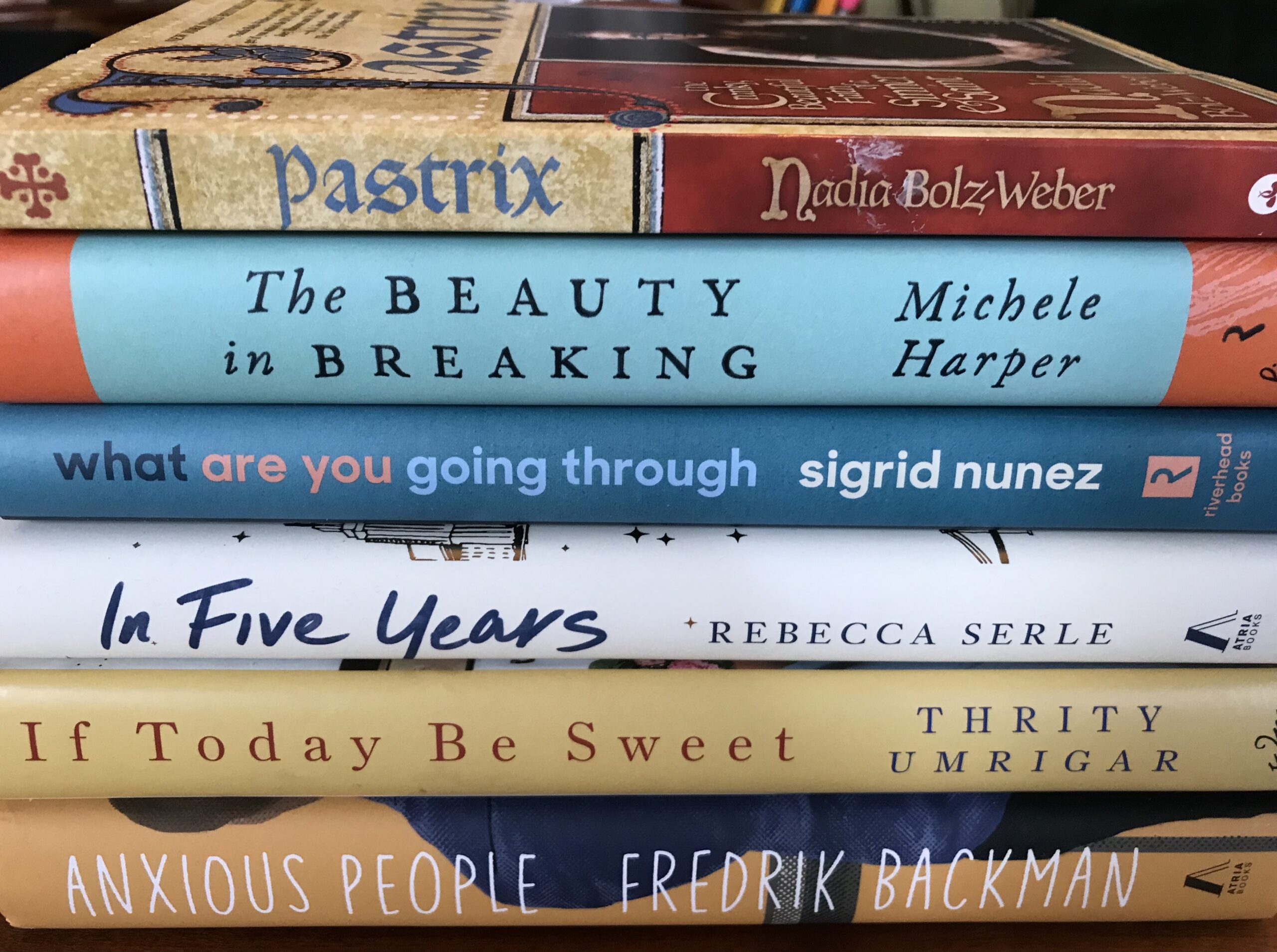
The Beauty in Breaking by Michelle Harper, MD.
Beautifully written memoir of the author’s search for meaning and peace. Through poignant patient care stories from her early years of ER practice, Harper works through her own baggage from childhood and a failed marriage. Each vignette offers a lesson of sorts, without being preachy. Harper is the type of doctor you want for yourself, committed to listening and healing.
The Midnight Library by Matt Haig
Mention libraries, and I’m hooked. This library is a bit different, housing memories and regrets of one person. And btw, she only finds it in a time stoppage between her life and potential death. Nora finds herself in a bleak place and decides her life is no longer worth living. The library and its familiar librarian offer Nora a last-minute chance to explore her regrets and see the end of the paths not taken. Each has unexpected twists, some pleasant, some less so. The ending is not especially surprising, but the journey is insightful and engaging.
Trust Exercise by Susan Choi
High school theatre students are trapped in their own life dramas: teenage angst, troubled families, teachers who push boundaries in uncomfortable ways. What is consent, informed or otherwise? The novel unfolds over 25 years, with one character appearing throughout and others playing the peripheral roles. What ifs are considered. None of the questions are fully answered, and there is no particular resolution, nor any especially likable characters. Though I was once a high school drama kid, this drama was not really my cup of tea.
----------------------------------------------------------------------------------------------------------------------------------------------------
Diversion – I watched “Forever” on Amazon. Oddly fit into this theme of do-overs and regrets. Quirky, funny, thoughtful.
----------------------------------------------------------------------------------------------------------------------------------------------------
What Are You Going Through? by Sigrid Nunez
A female narrator visits a longtime friend who has terminal cancer. Close friends from young adulthood, they have become distant friends but still connected. The narrator’s interactions with others involve the importance of conversation and connection. First half of the novel meanders. Second half is the heart of the story, when the friends’ connection becomes more meaningful and fully embraced, while exploring hard ethical decisions.
Homegoing by Yaa Gyasi
After reading Gyasi’s Transcendent Kingdom last year, I had to go back and read her first novel. Homegoing is a beautiful, harsh, complicated tale through generations of 2 sisters who had never met and experienced radically different lives. It spans continents and cultures. Each chapter focuses on one member of the next generation in each sister’s family line, weaving in the legacies of previous generations. Both heartbreaking and heart-filling.
Heroes of the Frontier by Dave Eggers
Confession: Rebecca passed this book along to me, and I quickly noticed details that sounded familiar. As I kept reading, it became clear I had previously read this novel but remembered little of the plot or ending. Bottom line: while it was a somewhat enjoyable read, it was not memorable. The heroes are a mom whose life has been upturned and her two young children; their frontier is Alaska by way of a rented RV. The people they meet and risks they take lead to some reconciliation of old hurts for mom Josie. However, I didn’t think Josie was a particularly likable character, and I questioned many of her decisions, both as a mom and a human. This one won’t be a “keeper,” as much as I usually like Dave Eggers’ work.
If Today be Sweet by Thrity Umrigar
Recently widowed Tehmina, a 66-year-old Parsi from Bombay, has been staying with her son’s family in Ohio since her husband’s passing. Grief, awkwardness, and cultural differences have created tensions in the family dynamic. Tehmina’s son and daughter-in-law have asked her to join them and their 7-year-old son in America full-time, rather than return to her flat in Bombay, where she has never lived alone. The novel explores the perspectives of all the adults, as Tehmina ponders her future. A traumatic situation involving neighborhood children becomes a tipping point in surprising ways.
On Earth We’re Briefly Gorgeous by Ocean Vuong
I was drawn to this novel by the reviews applauding the lovely writing. Some of the novel is indeed lyrical, created as a letter to the author’s mother. Only the mother doesn’t read English. Her son, the writer, offers up his memories and stories from his youth that his mother likely doesn’t know. It’s a bit heartbreaking to contemplate the language disconnect between mother and son. It’s not my favorite book on this list, but I’m not sorry I read it.
Keep Quiet by Lisa Scottoline
Sometimes I just need a book that demands little of me – entertaining, with enough meat to keep me reading. This was that book. From the first pages, this novel spins a web of deceit that just keeps growing. A father trying to bond with his teenage son makes a huge mistake, resulting in tragic consequences. In his effort to protect his son, he covers up. Like most lies, these keep compounding to avoid detection. The tension is high, and the intrigue made it hard to put down.
The World That We Knew by Alice Hoffman
If you know me (or have been paying attention) you know I’m drawn to novels about WWII and the Holocaust. It may sound morbid, but so many of these stories are of resilience, hope, inspiration, and love. The World That We Knew fits the bill. While I typically don’t care for supernatural stories, that aspect of this novel carries a spiritual intent and meditation on what it means to be alive. It’s a book of a mother’s deep love and sacrifice for her child, of people who do good in bad times, and of finding connection and love to conquer evil.
Anxious People by Fredrik Backman
I loved Backman’s first novel, A Man Called Ove, but admittedly found some of his follow-ups to be predictable and less memorable. I didn’t rush to read Anxious People, but I’m glad I finally did. A cast of colorful characters find themselves held hostage by a would-be bank robber. Throw in a father-son police duo and a psychologist, and it becomes quite a romp through secrets and backstories and hidden connections. True to Backman’s signature style, there is much redemption and resolution to be found. I recommend it to anyone who needs a feel-good shot in the arm.
My Own Words by Ruth Bader Ginsburg, with Mary Hartnett and Wendy Williams
Admittedly, I was already an RBG fan before reading this, but the book drives home the impact she made before and during her years on the Supreme Court. This collection of legal briefs, speeches, and other writing demonstrates her commitment to gender equality, the power of dissent, collegiality, and justice. As in the law, RBG’s work is full of citations and legal process, which was a bit distracting to me, and I skimmed through some of the more dense legal sections. Overall, I was thankful again for the benefits we have from her service.
The Emperor of Maladies by Siddhartha Mukherjee
Lots of science in this history of cancer. I expected this tome to be my last book of the month, but I gave up early. If you like medicine and history, this book is for you. It’s well-written, but when I weighed it against my reading time and interest, moving on was the winner.
Pastrix by Nadia Bolz-Weber
I’m not very good at the religion thing, though I have some core values about faith and spirituality. When a friend introduced me to the Sarcastic Lutheran (Nadia) on social media, I was intrigued. I like her unorthodox and refreshing approach to Christianity and humanity. Pastrix is Bolz-Weber’s background story (addiction, tattoos, planting the House for All Sinners and Saints congregation) with chapters about significant learning/teaching along the way. You won’t find any “holier than thou” in her work, but there is plenty of reflection and depth.
What have you been reading?
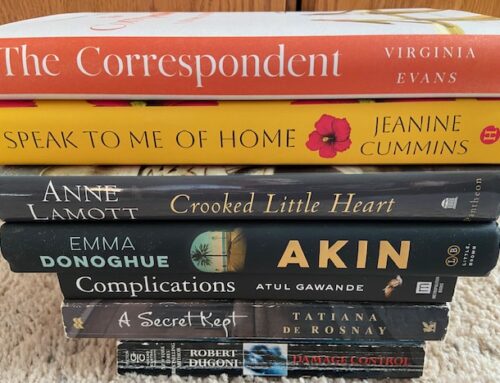
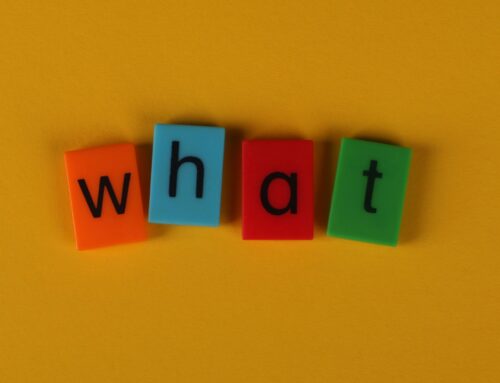
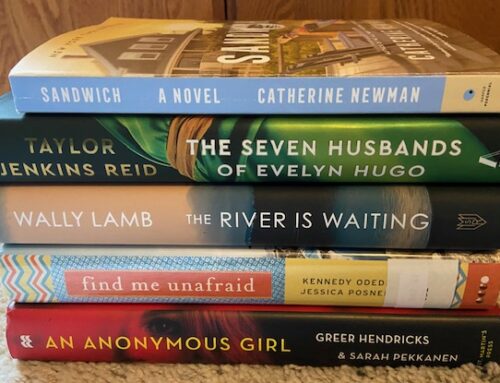
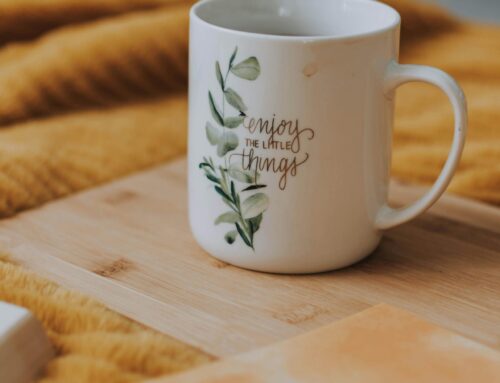
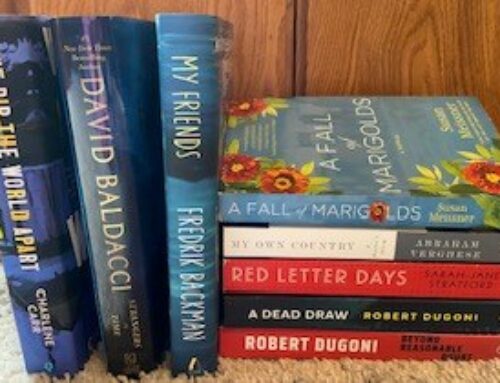
Leave A Comment
You must be logged in to post a comment.